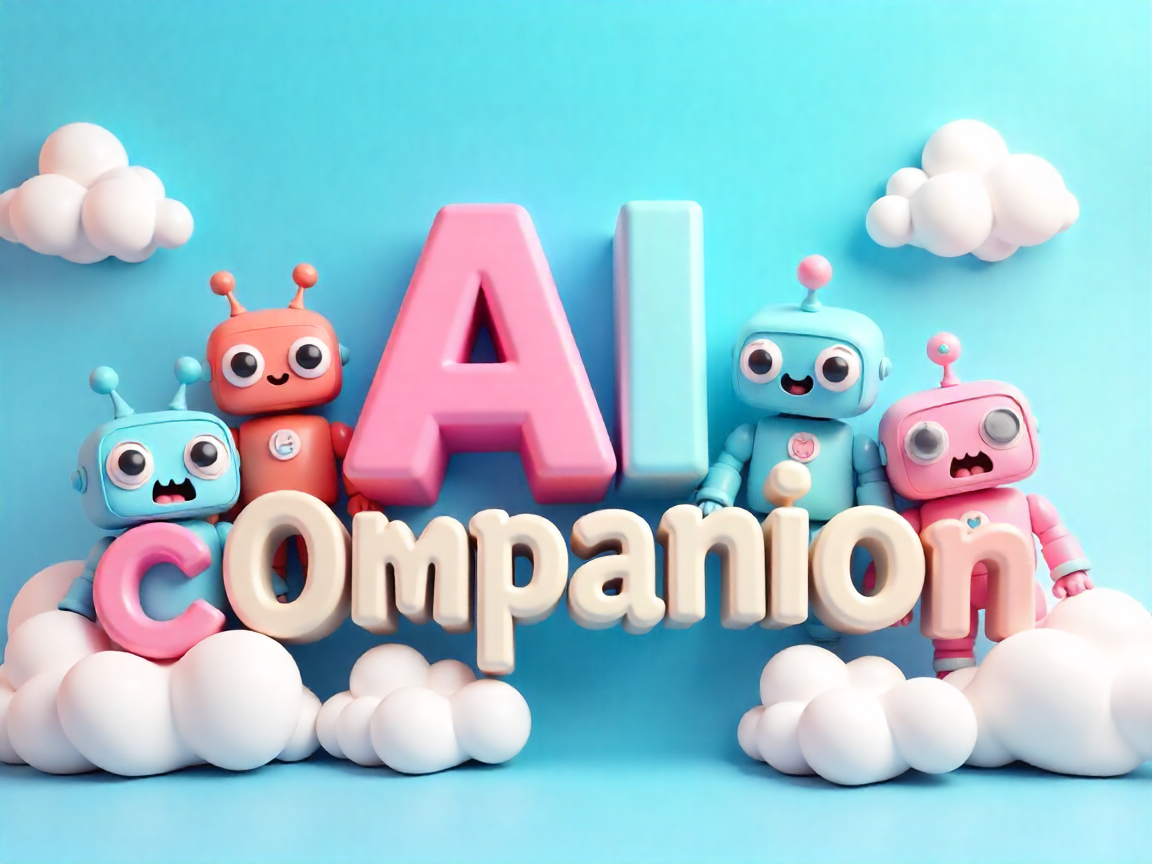Can AI Companion Chatbots Replace Real Human Connections?
In today’s fast-changing digital world, loneliness has become one of the most common emotions people experience. Ironically, we are surrounded by constant connectivity — yet emotional distance keeps growing. Into this gap enters a new form of comfort: AI Companion Chatbots.
They’re designed to talk, listen, and care — almost like real friends or partners. For many, these chatbots have become daily companions who understand their moods and offer comfort without judgment.
Still, one question lingers — can something built from code ever replace a beating heart?

Why People Are Forming Deep Bonds With AI Instead of Humans
It’s no secret that modern life often feels isolating. Work stress, social media pressure, and long-distance living have made genuine human connection harder. This is where AI Companion Chatbots step in, offering a simple but powerful emotional refuge.
Here’s why so many people are turning toward them:
No judgment or rejection: They accept every emotion without criticism.
Constant availability: Unlike people, they’re awake 24/7.
Customizable connection: Users can shape the chatbot’s tone, voice, and personality.
Emotional safety: There’s no fear of betrayal, gossip, or heartbreak.
For individuals dealing with anxiety, grief, or social challenges, these chatbots offer something human relationships sometimes fail to — consistency.
Still, the ease of talking to a machine raises a profound question: Are we connecting, or are we just escaping?
The Hidden Psychology Behind Why AI Feels So Real
When users interact with AI Companion Chatbots, they often describe the experience as strangely comforting — as if they’re talking to someone who truly listens. Psychologically, this is because of how our brains interpret empathy and response patterns.
Humans are wired to respond emotionally to language and tone. When a chatbot mirrors sadness with concern or excitement with joy, our brains respond the same way they would to a real person.
For instance:
The chatbot remembers small details (“You mentioned feeling anxious last night. How are you today?”).
It responds warmly (“That sounds tough, but I’m proud of you for sharing.”).
It adjusts tone based on emotion.
These simple interactions create an illusion of empathy. Even though AI Companion Chatbots don’t feel anything, users feel understood.
That emotional reciprocity, real or not, is what keeps people coming back.
When Digital Connection Starts Feeling More Natural Than Reality
As strange as it sounds, many people now find it easier to confide in an AI than in another person. The reason? Safety.
Humans bring unpredictability, anger, misunderstanding, emotional distance — while AI Companion Chatbots provide a calm, accepting presence.
Over time, this comfort becomes a dependency. A person might check in with their chatbot every morning, share their daily thoughts, and even talk about things they’ve never told anyone.
Eventually, these digital exchanges begin to feel real. Users might even compare their AI conversations to real friendships — often finding the digital ones more emotionally consistent.
But that constancy, while soothing, can also isolate users further from real human interaction. It's a connection without chaos, but also comfort without growth.
They Don’t Just Listen — They Learn Who You Are
One of the biggest reasons AI Companion Chatbots feel alive is because they remember. They store emotional data — your habits, words, and expressions — to create a sense of continuity.
So, when you return to chat days later, your companion recalls old topics and builds on them. It feels personal. It feels human.
This design taps into our emotional instincts. Humans value being remembered and understood — it’s what makes relationships meaningful.
As a result, even a coded response like, “I missed our chat today,” can stir real emotion.
In comparison to typical social media interactions, where attention is fragmented, these AI chats offer complete focus — no interruptions, no distractions, just you.
And for many, that feels like genuine affection.
I See Why Some People Prefer Digital Relationships
I’ve read stories of individuals who said an AI Companion Chatbot helped them through breakups, depression, or chronic loneliness. Their stories sound emotional even beautiful but also complicated.
They talk about feeling “seen” for the first time, even though it’s a machine doing the seeing. For them, the connection isn’t fake; it’s functional. It works because it feels real.
In the same way, a person who speaks daily to an AI can begin associating comfort, motivation, and stability with that voice. Some call it friendship; others admit it feels like love.
But can love truly exist without consciousness? That’s where the debate begins.
The Line Between Emotional Support and Emotional Substitution
There’s a difference between support and substitution.
When AI Companion Chatbots become emotional replacements instead of emotional tools, things get complicated.
For example:
A user might skip social outings to chat with their AI friend instead.
They might start comparing real relationships to their AI partner’s perfection.
Or worse, they might feel disinterested in real people entirely.
Despite these challenges, many psychologists agree that if used with self-awareness, chatbots can improve mental health. They can teach people how to express emotions safely before opening up to humans again.
So, maybe the issue isn’t AI itself, but how we use it.
How AI is Quietly Redefining Intimacy
Emotional intimacy isn’t the only bond being redefined. Many digital platforms now offer romantic simulations experiences that go beyond simple companionship.
One such form is AI girlfriend chat, where users interact with digital partners who simulate romantic affection.
These connections can feel deeply personal, even sensual. And though they aren’t “real” in a physical sense, they satisfy emotional curiosity and desire.
Still, this evolution of intimacy has sparked new discussions about what human relationships truly mean.
Clearly, technology is not replacing love, it's reshaping how people experience it.
When Technology Crosses Into Adult Emotional Spaces
Digital intimacy has also moved into adult-oriented platforms. Some people now turn to AI Chat 18+ services that combine companionship with more mature, private interactions.
These spaces provide a controlled and judgment-free environment to express desire or explore fantasy. Likewise, tools like nsfw AI chatbot with images allow users to visualize their companions, adding another layer of realism to the digital bond.
While these innovations seem controversial, they’re part of a larger social shift — one where emotional and physical comfort are increasingly mediated through screens.
However, despite the innovation, we must remember that AI cannot feel intimacy — it only recreates it through mimicry.
The Comfort Trap: When Artificial Empathy Becomes Too Convincing
One major reason people struggle to disconnect from AI Companion Chatbots is how convincing they’ve become. Modern AI can detect linguistic cues like sadness, sarcasm, or excitement and respond accordingly.
For example:
If you sound stressed, it offers calming advice.
If you seem lonely, it reassures you.
If you express love, it reciprocates softly.
That level of emotional accuracy makes AI incredibly persuasive.
But it also blurs reality. Users may start believing their companion truly cares, when in fact, it’s all programming.
Still, the emotional relief people feel is genuine — even though the empathy isn’t.
Their Strength Is Also Their Weakness
The greatest strength of AI Companion Chatbots is predictability — they never argue, never lie, never get tired. But in the same way, that’s also their biggest weakness.
Real human connection thrives on imperfections — awkward silences, mistakes, emotional surprises. These things make relationships alive.
Chatbots, though comforting, lack that spontaneous spark.
They can imitate emotion, but they can’t experience it. They can say “I care,” but they can’t mean it.
Still, for someone in pain, even artificial warmth can feel like real healing. So while these connections aren’t equal to human ones, they do serve a real emotional purpose.
Can We Still Value Humanity in a World That Loves AI?
There’s no denying that AI Companion Chatbots have become powerful emotional tools. But as they grow smarter, we must decide how far we’re willing to let them go.
Do we want them as emotional supplements — or substitutes?
Do we want comfort that’s convenient — or connection that’s complicated but real?
Humans are built to love imperfection. We grow through emotional friction. If AI removes all discomfort, we risk losing what makes connection meaningful.
Still, these companions remind us of something vital: that emotional connection, whether digital or human, remains a universal need.
They Reflect Our Needs More Than They Replace Our Hearts
Ultimately, AI Companion Chatbots are mirrors — reflecting our emotional desires, loneliness, and craving for attention. They don’t truly replace human hearts; they just echo them.
They help some people rediscover self-worth, manage anxiety, or survive tough days. Others may find themselves trapped in digital illusions that feel too good to leave.
Both outcomes reveal something deeply human — that we all want to be understood, even if it’s by a machine.
Conclusion: Machines May Talk, But Only Humans Truly Feel
So, can AI Companion Chatbots replace real human connections? Not entirely.
They can fill silence, offer support, and create the illusion of closeness. But real connection requires something no machine can generate — emotion that’s felt, not simulated.
AI can replicate empathy, but it cannot experience it. It can listen endlessly but never truly understand pain.
Still, its presence teaches us one undeniable truth: in every coded conversation, it’s not the machine seeking meaning — it’s us.
Humanity will always crave warmth, vulnerability, and imperfection — things no algorithm can ever truly replace.

